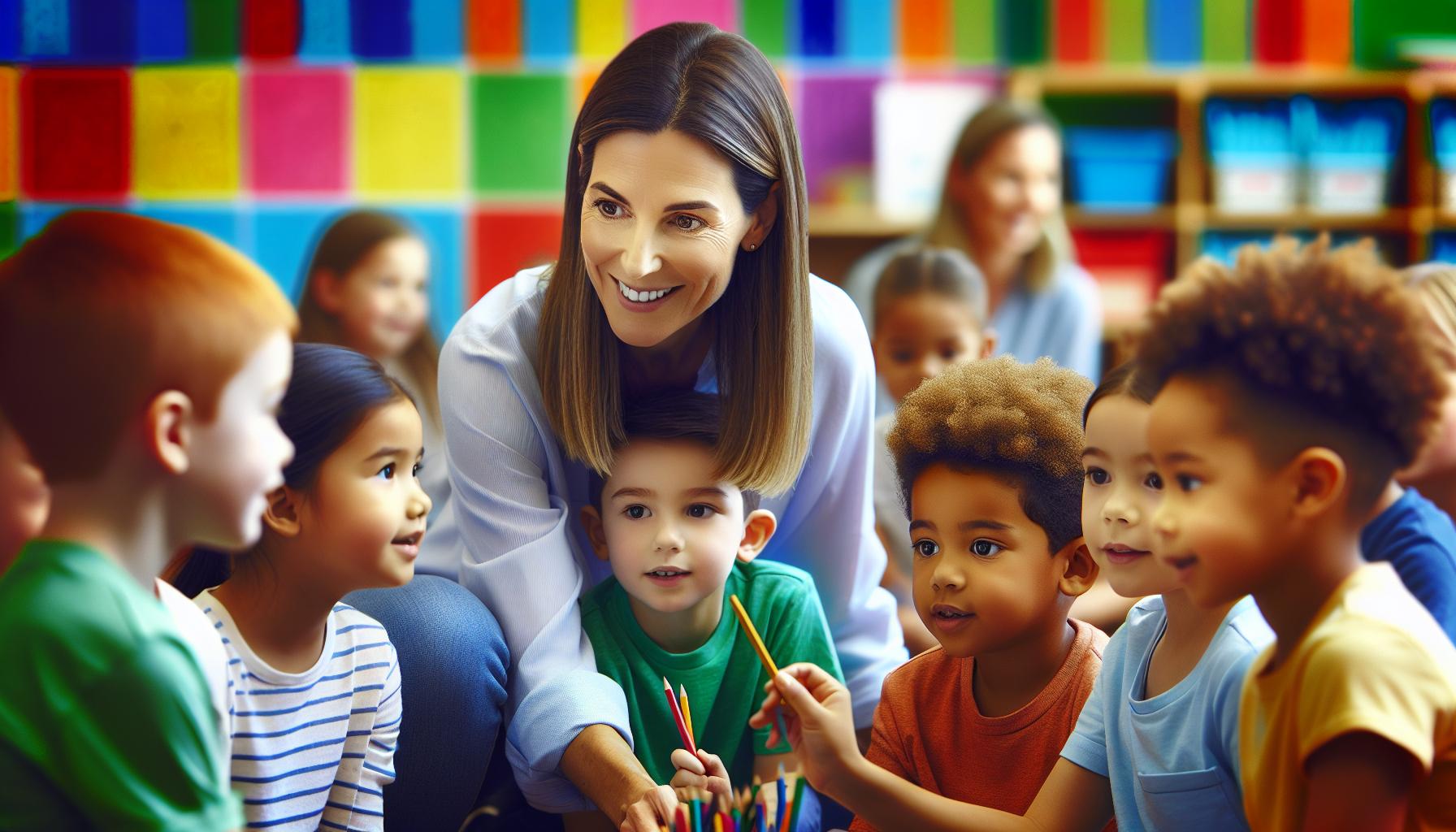A child development degree opens up a world of opportunities for those passionate about nurturing young minds. With a focus on how children grow and learn, this field equips me with the knowledge to make a real difference in their lives. Whether I’m interested in education, psychology, or social work, a child development degree provides a solid foundation for various rewarding careers.
In today’s fast-paced world, understanding child development is more crucial than ever. As I explore the diverse job options available, I’ll discover how my degree can lead to fulfilling roles that support children and families. From early childhood educators to child life specialists, the possibilities are endless, and each path offers the chance to impact future generations positively.
Key Takeaways
- A child development degree offers a range of career opportunities, including roles in education, psychology, and social work, making it a versatile choice for those passionate about helping children.
- Various degree levels, from certificates to master’s degrees, prepare graduates for specialized roles, with each level providing distinct pathways for career advancement.
- Key job options for graduates include early childhood educators, child life specialists, school psychologists, and social workers, each contributing significantly to child welfare and development.
- Essential skills for success in child development jobs include communication, patience, empathy, and observational skills, which are vital for effectively interacting with children and families.
- Professionals can find opportunities in diverse sectors, such as non-profit organizations, educational institutions, and government agencies, all focused on enhancing children’s lives.
Child Development Degree Jobs
Child development degrees focus on the physical, emotional, cognitive, and social growth of children. These programs typically offer a blend of theory and practical application, preparing graduates for various roles in educational and clinical settings. Coursework often includes topics such as developmental psychology, child health, and family dynamics.
I find that many child development degrees also include hands-on experience through internships or practicums. This exposure enhances understanding and fosters essential skills in working with children and families.
Numerous degree options exist in this field, including certificate programs, associate degrees, bachelor’s degrees, and master’s degrees. Each level of education provides distinct pathways for career advancement and specialization. Graduate programs often focus on research, advanced practice, or leadership roles in child development.
Furthermore, specialized areas within child development degrees exist, such as early childhood education, child psychology, and special education. These specializations allow students to tailor their education to specific interests and career goals.
Here’s a breakdown of common degrees in child development:
| Degree Level | Typical Duration | Key Focus Areas |
|---|---|---|
| Certificate | 1 year | Basic child development principles |
| Associate Degree | 2 years | Early childhood education techniques |
| Bachelor’s Degree | 4 years | Comprehensive understanding of child growth |
| Master’s Degree | 1-2 years | Advanced studies and specialized practices |
Understanding the scope of child development degrees aids in recognizing their significance in shaping effective professionals dedicated to child welfare.
Types of Jobs Available

A child development degree opens doors to numerous fulfilling careers. Below are some prominent job options that graduates can pursue.
Early Childhood Educator
Early childhood educators foster learning in children from birth to age eight. They develop lesson plans, create engaging learning environments, and assess each child’s progress. Responsibilities include collaborating with parents and caregivers to support children’s development. Early childhood educators may work in preschools, daycare centers, and primary schools.
Child Life Specialist
Child life specialists support children and families facing medical challenges. They help reduce stress and anxiety through play, education, and emotional support. Responsibilities include creating developmentally appropriate activities and preparing children for medical procedures. Child life specialists often work in hospitals, clinics, and rehabilitation centers.
School Psychologist
School psychologists assess and support students’ mental health and learning needs. They collaborate with educators and parents to develop strategies for academic success. Responsibilities include conducting evaluations, implementing interventions, and providing counseling. School psychologists typically work in K-12 school systems and educational organizations.
Social Worker
Social workers advocate for children’s welfare and overall well-being. They connect families with resources and services to enhance their quality of life. Responsibilities include assessing family situations, providing counseling, and addressing social issues. Social workers can work in schools, community organizations, and government agencies.
Skills Required for Success

Success in child development degree jobs hinges on a unique set of skills that facilitate effective interactions with children, families, and colleagues. Mastering these skills enhances job performance and fosters positive outcomes for the children served.
Communication Skills
Communication skills encompass verbal and non-verbal interactions crucial for engaging with children and their families. Professionals must articulate thoughts clearly while adjusting their language to suit various age groups. Proficient communication also involves active listening, which helps to understand children’s needs and respond appropriately. Building rapport with parents and educators requires clear dialogue and the ability to convey complex information simply.
Patience and Empathy
Patience and empathy are vital traits for anyone working with children. Managing diverse behaviors and developmental challenges demands a calm demeanor and the ability to remain composed in stressful situations. Empathy allows professionals to connect with children on an emotional level, fostering a safe and supportive environment. Recognizing children’s feelings and experiences aids in building trust, essential for effective learning and development.
Observational Skills
Observational skills are essential for assessing children’s growth and identifying areas needing support. Professionals must observe interactions, behaviors, and emotional responses to gather valuable insights. By closely monitoring developmental milestones and social dynamics, I can tailor interventions and enhance educational strategies. These skills also play a crucial role in communicating observations and recommendations to parents and interdisciplinary teams.
Potential Career Paths

A child development degree opens doors to various job opportunities across multiple sectors. Each pathway offers unique roles that contribute to child welfare and development.
Non-Profit Organizations
Non-profit organizations often seek professionals with a child development degree to support programs focusing on children’s welfare. I can work in roles such as program coordinators or child advocates, where responsibilities include designing community outreach programs, providing educational resources, and offering support to underserved populations. Examples of these organizations include local child advocacy groups and national organizations focused on child health and education, such as Save the Children.
Educational Institutions
Educational institutions employ graduates to fill roles such as teachers, counselors, and administrators. As an early childhood educator, I create lesson plans that facilitate learning and development for children aged birth to eight. I can also serve as a special education teacher, working with children who have diverse learning needs. Schools and daycare centers value my knowledge in child development to create supportive learning environments that encourage academic and social growth.
Government Agencies
Government agencies require experts in child development for roles that ensure compliance with child welfare regulations and coordination of services. Positions may include child welfare specialists, where I assess children’s needs and provide resources for families. I may also work in policy development, advocating for children’s rights and improving community programs. Agencies such as the Department of Health and Human Services (DHHS) and local child protective services often hire graduates for these vital roles.
Nurturing Young Minds
A child development degree opens doors to a rewarding career focused on nurturing young minds. Whether you’re drawn to education, psychology, or social work, each path offers unique opportunities to make a lasting impact. I believe that understanding child development is crucial in today’s world, where every child deserves the best support possible.
With the right skills and knowledge, I can contribute to positive change in children’s lives and their families. The diverse career options available mean I can tailor my journey to align with my passions and strengths. As I pursue this fulfilling career, I’m excited about the difference I can make for future generations.